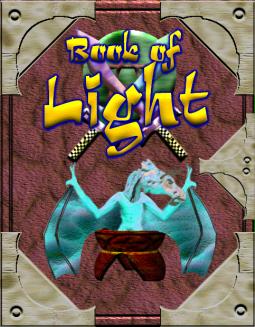

 |
 |
Love, I have defined as the desire to be happy, safe and secure. This definition is the result of melding the teachings of Siddhartha and Abraham Maslow. This desire maybe extended to the self or toward others. The desire may set in motion any one of many emotions, which in turn can set in motion any number of events.
Fear, on the other hand, is the desire to not loose happiness, safety, or security. Fear is good, if we listen to it and let it guide us. Snakes are not all poisonous or dangerous. Yet children do not know which one is and which one is not. If that child should not fear snakes, he may pick up a coral snake and be promptly killed when the snake, thinking it is in danger, strikes out. Instead, evolution has maintained a fear of snakes that we may live long enough to tell the difference between a coral snake and a king snake.
Fear is not our enemy. If, however, we focus on the fear, so that the fear is all we see, we may become our own enemy. The person who is so afraid of snakes that they jump at the sight of a garden hose is focused only on the fear. This kind of fear pervades our culture in America so that people are afraid to take risks. This endangers the mind, who needs challenges and like to take calculated risks. A mother maybe so afraid of their child dying, that the child never climbs a tree, or gets to taste Korean food. Limiting the child's experiences, there maybe no avenue to avoid certain kinds of depressions.
Without challenges, the mind will stagnate, and become cold, narrow. Taking a flying leap off a cliff, supported by nothing but a rope or a kite, can exhilarate the mind to the speed of thought. With that, the mind can grow, and enjoy the addiction of endorphins that are natural to the mind. Yet we stare at the cliff, at a good distance, never embracing the chance that we may indeed die.
Death comes to us all. We will all die, soon, alone, and as far as the living are concerned, forever. If we worry about dying, if we focus on the fear, we will not live. Life is the great abundance. What would you be doing if you where not born? What would you be doing if you were dead? We were conceived, and we will die. Worrying about where and how we are going to die will distract us from our living. That can result in our being dead without having let the body stop any of its functioning.
Fear is a tool, a desire that keeps us alive. We learn about snakes, or how to hold onto that kite as we leap off the cliff. If you let it do any more than that, fear will lead you into suffering. Your life will be unfulfilled, and you may seek vanity to fill it. Like a sugar puff, your life will get a periodic rush, and then feel yucky. To avoid feeling yucky, you may seek other vanities. Soon, like Solomon, you will complain that “Everything is meaningless. [Ecclesiastes 1:2].”
Fear, unresolved, may also evolve into anger. This too, is a valuable emotion. It was anger that prompted Gandhi to seek to change the condition he found his people in. It was anger, schooled in all the right directions, that helps us change our environment. Anger kicks us in our complacency and motivates us to make the world better for our selves and our loved ones. What did I say love was? The desire to bring happiness, and security is love.
Burning down churches, or murdering someone just because of some difference is not anger. This is hate. When we are angry long enough, with no release to the frustrations we experience under anger, anger can become hate. This is not the only avenue for hate to come to us. We can teach a child to hate. Either way, hate is the thought killer. Prejudice does not think. It sees the woman in the black cloak passing the church just as lightning has struck it and declares her to be a “Witch.” It sees the small group of young men gathering in the park and declares them “Gang bangers.” It views the Satanic Grotto and declares them as “anti-Christian.”
That the little old lady just happened to be in the neighborhood at the right time is of no consequence to hate. Hate really needs no excuses. Often, it is not until the victim of hate shoots up a school, or hangs herself that we look at our hate and question its existence. Then, coddled into believing we will try better, or that we could not have been at fault, or that they deserved their fate, thought again stops.
Hate is a difficult master to beat. First, we must want to change. This is not easy. Having not thought for so long, old habits are hard to change. The one who would be better can change, with a mix of anger and thoroughness in the new behavior pattern. When afraid, or angry, or hate filled, watch where the thoughts travel. Where they go will tell you what they are wanting. Then, like the hunter with a dog (is there a reason dog is spelled god backwards?) we must choose how to make the changes.